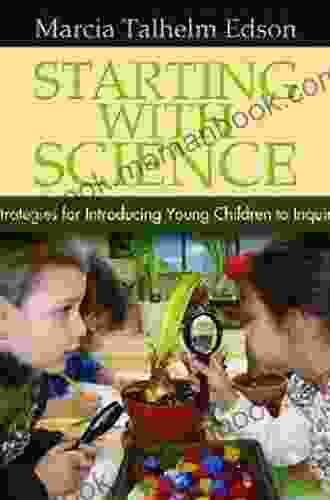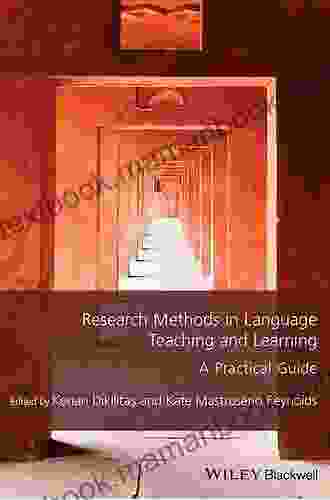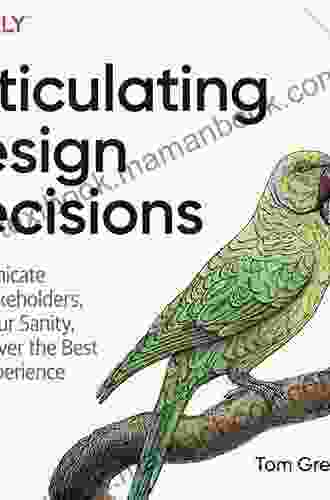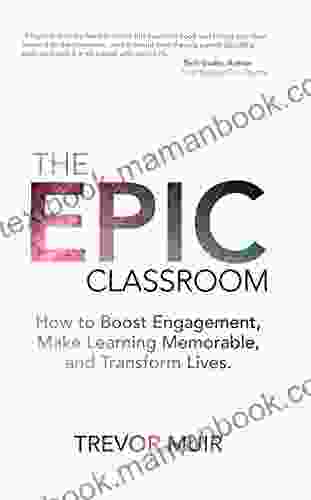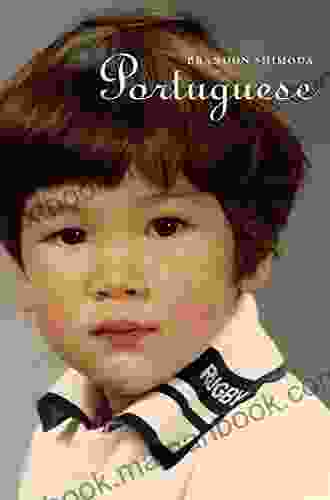Nurturing Young Inquisitive Minds: Strategies for Introducing Inquiry-Based Learning in Early Childhood

In the tapestry of a young child's mind, inquiry weaves vibrant threads of curiosity, wonder, and a thirst for knowledge. By embracing inquiry-based learning in early childhood, we empower these young minds to embark on a lifelong journey of discovery and exploration.
Inquiry-based learning places children at the heart of their learning experience, fostering their natural curiosity and allowing them to actively construct knowledge through hands-on experiences and authentic questioning.
4.6 out of 5
| Language | : | English |
| File size | : | 4537 KB |
| Text-to-Speech | : | Enabled |
| Screen Reader | : | Supported |
| Enhanced typesetting | : | Enabled |
| Word Wise | : | Enabled |
| Print length | : | 160 pages |
This article delves into a myriad of strategies that educators and caregivers can employ to introduce young children to inquiry and ignite their insatiable desire for learning.
Creating a Conducive Environment
A stimulating environment lays the foundation for inquiry-based learning. By providing open-ended questions, engaging materials, and a comfortable space for children to ask questions, share ideas, and collaborate, we foster a culture of curiosity and exploration.
Open-ended questions, such as "What do you notice about this?" or "What might happen if...", encourage children to think critically, make predictions, and develop their own theories.
Access to a variety of materials, such as blocks, books, art supplies, and natural objects, allows children to engage in hands-on exploration and experimentation, facilitating their understanding of the world around them.
A dedicated "inquiry corner" or "discovery zone" within the classroom or home provides a designated space for children to explore, ask questions, and engage in independent learning.
Encouraging Active Exploration and Problem Solving
Inquiry-based learning empowers children to take an active role in their learning by posing questions, conducting investigations, and solving problems.
Provide children with opportunities for hands-on experiments, such as mixing different liquids or exploring the properties of different objects. Encourage them to make predictions, observe the results, and draw s.
Facilitate children's problem-solving skills by presenting them with age-appropriate challenges and encouraging them to develop and test their own solutions. Guide them through the problem-solving process, asking questions such as "What are some possible solutions?" or "How could we test this idea?"
By supporting children's active exploration and problem-solving efforts, we cultivate their critical thinking skills and foster their confidence as independent learners.
The Power of Questioning
Questions are the lifeblood of inquiry-based learning, driving children's curiosity and leading them down the path of discovery.
Use open-ended questions that invite children to share their thoughts and opinions without judgment. Avoid leading questions or questions that have a single "correct" answer.
Encourage children to ask their own questions, both during structured activities and in everyday situations. Create a classroom or home environment where children feel safe asking questions and sharing their ideas.
Model the behavior of an inquisitive learner by asking questions yourself, showing children that it is okay to not know everything and that learning is an ongoing process.
Listening and Observation
As children embark on their inquiry journeys, it is crucial for educators and caregivers to listen attentively and observe their interactions closely.
Listen to children's questions and comments, paying attention to their interests and the areas where they need additional support.
Observe children's play and interactions with materials, identifying opportunities to extend their learning and encourage further exploration.
By listening and observing, we gain valuable insights into children's thinking processes and can tailor our guidance and support to meet their individual needs.
Documentation and Reflection
Documenting children's inquiries and reflections provides a valuable record of their learning journey and helps educators and caregivers monitor their progress.
Create anecdotal notes, take photographs, or record children's conversations during inquiry activities.
Encourage children to reflect on their learning by asking them questions about their investigations, experiments, and discoveries.
Use documentation and reflection to plan future learning experiences that build upon children's interests and deepen their understanding.
Collaboration and Partnership
Introducing inquiry-based learning in early childhood is a collaborative effort that involves educators, caregivers, and families.
Share information about inquiry-based learning with families and encourage them to support their children's curiosity and exploration at home.
Create opportunities for educators and caregivers to collaborate, share ideas, and support each other in implementing inquiry-based learning practices.
Build partnerships with community organizations, museums, and libraries to provide children with access to diverse learning experiences and resources.
By embracing inquiry-based learning in early childhood, we unlock the boundless potential of young minds. We empower children to become active participants in their own learning, fostering their curiosity, critical thinking skills, and lifelong love of discovery.
As we guide young children on their inquiry journeys, let us remember the words of the renowned physicist, Albert Einstein: "The important thing is not to stop questioning. Curiosity has its own reason for existing."
May we continue to nurture the inquisitive spirit within our children, encouraging them to embrace the wonders of the world and to never cease exploring, questioning, and learning.
4.6 out of 5
| Language | : | English |
| File size | : | 4537 KB |
| Text-to-Speech | : | Enabled |
| Screen Reader | : | Supported |
| Enhanced typesetting | : | Enabled |
| Word Wise | : | Enabled |
| Print length | : | 160 pages |
Do you want to contribute by writing guest posts on this blog?
Please contact us and send us a resume of previous articles that you have written.
 Top Book
Top Book Novel
Novel Fiction
Fiction Nonfiction
Nonfiction Literature
Literature Paperback
Paperback Hardcover
Hardcover E-book
E-book Audiobook
Audiobook Bestseller
Bestseller Classic
Classic Mystery
Mystery Thriller
Thriller Romance
Romance Fantasy
Fantasy Science Fiction
Science Fiction Biography
Biography Memoir
Memoir Autobiography
Autobiography Poetry
Poetry Drama
Drama Historical Fiction
Historical Fiction Self-help
Self-help Young Adult
Young Adult Childrens Books
Childrens Books Graphic Novel
Graphic Novel Anthology
Anthology Series
Series Encyclopedia
Encyclopedia Reference
Reference Guidebook
Guidebook Textbook
Textbook Workbook
Workbook Journal
Journal Diary
Diary Manuscript
Manuscript Folio
Folio Pulp Fiction
Pulp Fiction Short Stories
Short Stories Fairy Tales
Fairy Tales Fables
Fables Mythology
Mythology Philosophy
Philosophy Religion
Religion Spirituality
Spirituality Essays
Essays Critique
Critique Commentary
Commentary Glossary
Glossary Bibliography
Bibliography Index
Index Table of Contents
Table of Contents Preface
Preface Introduction
Introduction Foreword
Foreword Afterword
Afterword Appendices
Appendices Annotations
Annotations Footnotes
Footnotes Epilogue
Epilogue Prologue
Prologue Gordon Doherty
Gordon Doherty Mary Buffett
Mary Buffett Matthew Rief
Matthew Rief Trevor Muir
Trevor Muir Dr John Chase
Dr John Chase Randolph Caldecott
Randolph Caldecott Dana K White
Dana K White Jennifer Paganelli
Jennifer Paganelli Florence Witkop
Florence Witkop Anne Carson
Anne Carson K P Taylor
K P Taylor Kristen Marshall James
Kristen Marshall James Brenna Twohy
Brenna Twohy Roberto Calas
Roberto Calas Laura Brand
Laura Brand J B Turner
J B Turner Nicholas Harvey
Nicholas Harvey C J Peterson
C J Peterson Tiffany Lee
Tiffany Lee Elizabeth Henshall
Elizabeth Henshall
Light bulbAdvertise smarter! Our strategic ad space ensures maximum exposure. Reserve your spot today!
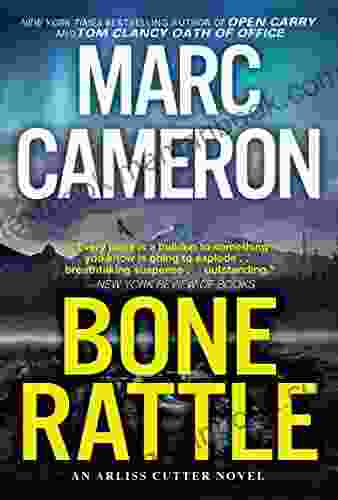
 Gabriel Garcia MarquezAn Arliss Cutter Novel: A Riveting Novel Of Suspense That Will Keep You on...
Gabriel Garcia MarquezAn Arliss Cutter Novel: A Riveting Novel Of Suspense That Will Keep You on... Hugo CoxFollow ·11.1k
Hugo CoxFollow ·11.1k Ezekiel CoxFollow ·16.4k
Ezekiel CoxFollow ·16.4k Adam HayesFollow ·4.8k
Adam HayesFollow ·4.8k Mario Vargas LlosaFollow ·14.8k
Mario Vargas LlosaFollow ·14.8k Gregory WoodsFollow ·9.2k
Gregory WoodsFollow ·9.2k Casey BellFollow ·8.8k
Casey BellFollow ·8.8k Ivan TurgenevFollow ·7.3k
Ivan TurgenevFollow ·7.3k Eric NelsonFollow ·9.8k
Eric NelsonFollow ·9.8k
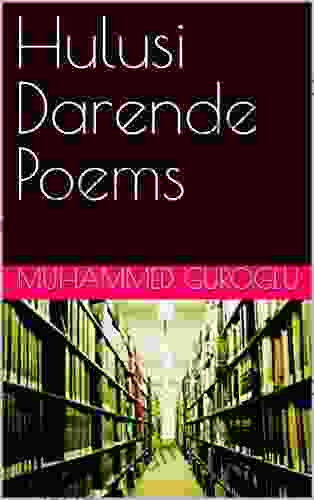
 Forrest Reed
Forrest ReedHulusi Darende's Poems: Unraveling the Lyrical Tapestry...
: A Journey into the Heart of Sufi...
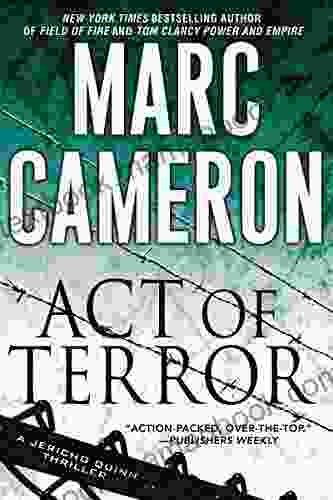
 Gabriel Blair
Gabriel BlairAct of Terror: A Jericho Quinn Thriller
In the heart-pounding...
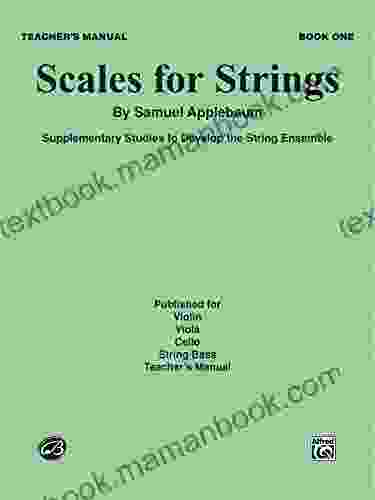
 Zadie Smith
Zadie SmithScales for Strings Teacher Manual: A Comprehensive Guide...
Scales are fundamental building blocks of...
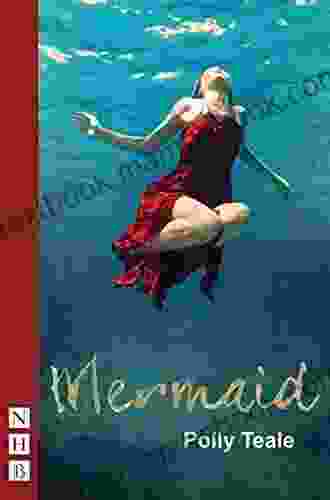
 Hugo Cox
Hugo CoxMermaid (NHB Modern Plays) Polly Teale
The Mermaid NHB Modern Plays series, a...
4.6 out of 5
| Language | : | English |
| File size | : | 4537 KB |
| Text-to-Speech | : | Enabled |
| Screen Reader | : | Supported |
| Enhanced typesetting | : | Enabled |
| Word Wise | : | Enabled |
| Print length | : | 160 pages |


